Losing My Grandma To Alzheimer’s Taught Me To Find Joy In the Small Moments
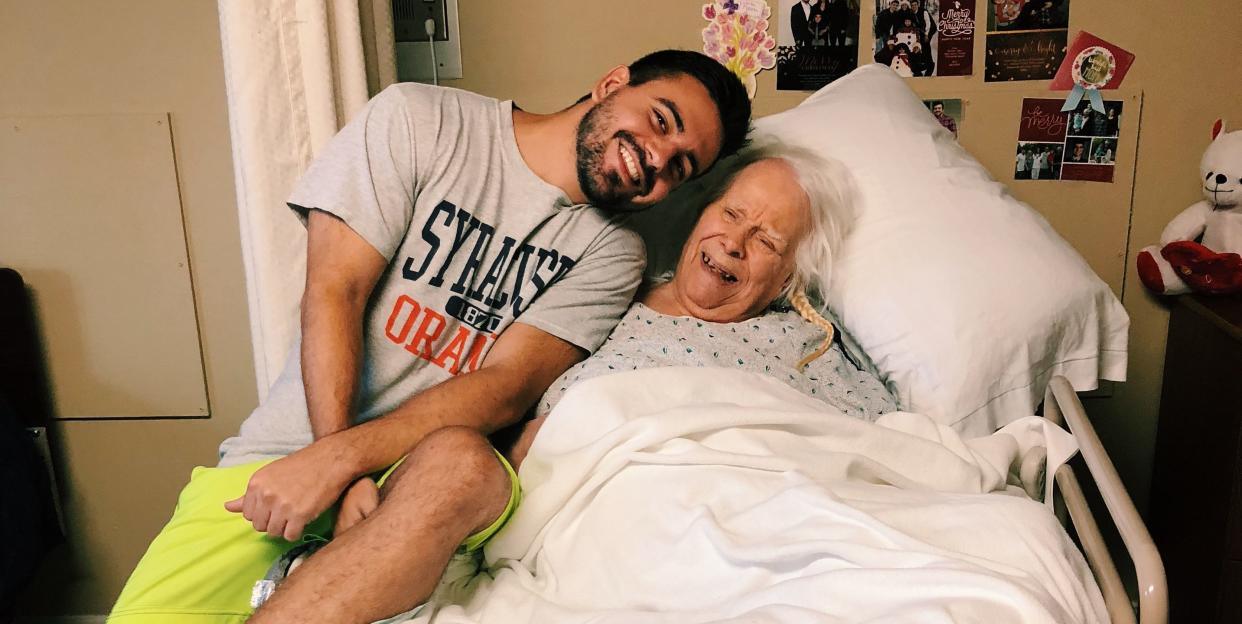
I have never experienced a bond with someone like the one I shared with my grandma — my yiayia, Sotiria Catacalos. All my life, she was more than a grandparent, she was my second mom. Growing up, I would call her every single day. But when I was in college, her dementia progressed to the point she no longer remembered how to use a phone. Later, she advanced to Stage 7 Alzheimer’s, losing her ability to complete simple acts of independence, like walking, carrying on a conversation, sitting in a chair, and eating solid food. In the shadow of this horrid disease, I'd look at her — her sweet blue eyes — and I'd still see her in there; the person I’ve known my entire life; my person.
My grandmother lost her battle to Alzheimer’s in January 2019. But I’m not here to tell you how horrible of a disease Alzheimer’s is, or how to grieve, or that living in a nursing home costs $11,000 a month. I'm not sharing my grandmother's story for sympathy. My yiayia, a Greek immigrant who came to America alone, was brave. She was a fighter, finding a way to raise four children after surviving the Great Depression. She loved harder than her body was able to bear. She did not — does not — need anyone's sympathy.
After a year without her, not a day goes by where the lessons those moments taught me don't crawl to the forefront of my mind. Even in the clutches of Alzheimers, my grandmother remained my teacher. How well she lived, and how much she loved, was, and still is, the foundation of my ever-lasting education. I carry my grandmother with me always, along with these six vital lessons.
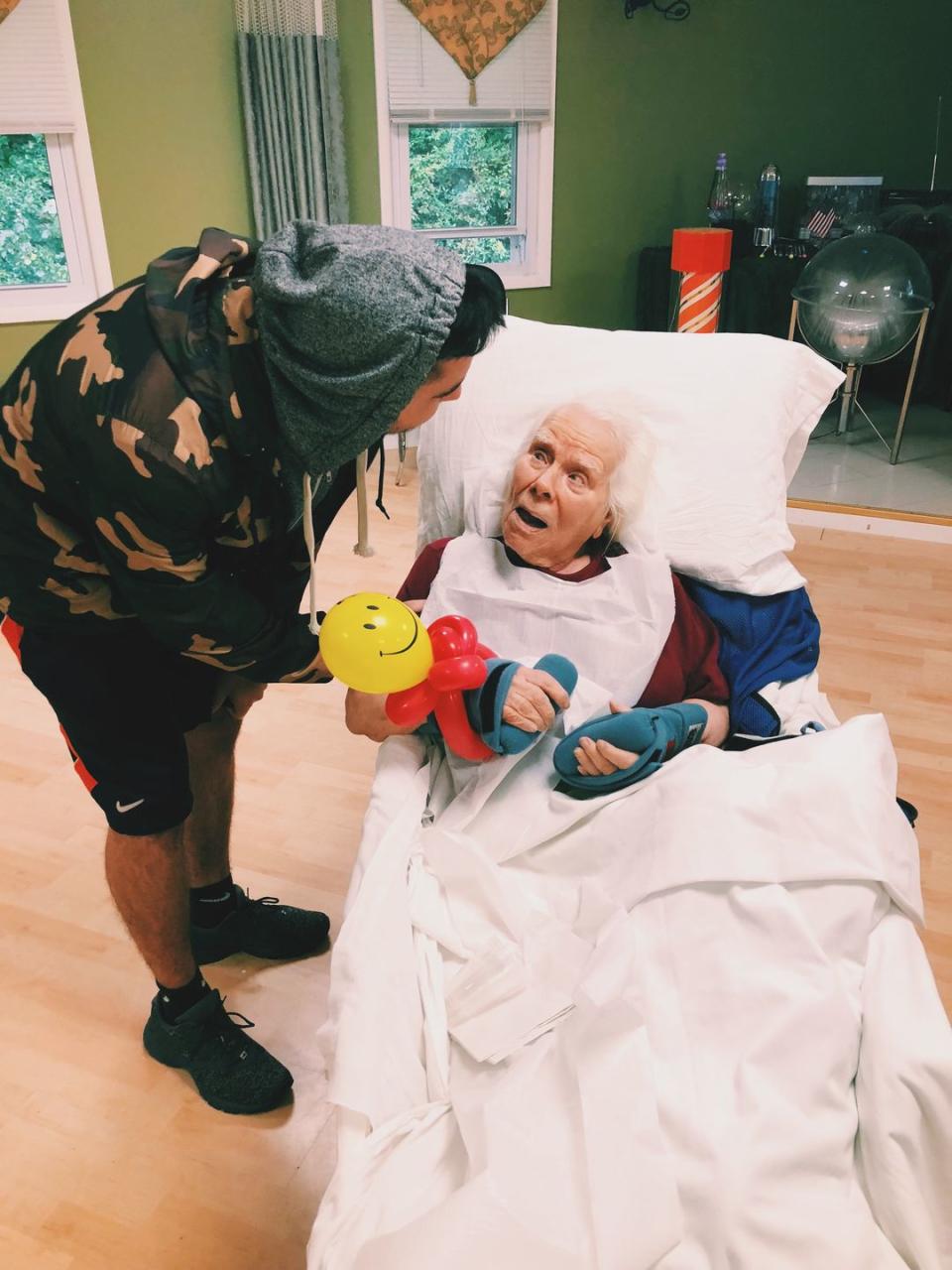
I’ll always be part of a club I never wanted to join.
I’m still not in a place where I’m organizing walks for Alzheimer’s awareness, because something about being in a crowd where the one thing everyone has in common is losing someone to Alzheimer’s scares me. I don’t want to bond with strangers over a disease that has taken so much from me. But I do have friends that understand what I'm feeling — an understanding borne out of their own difficult experiences — and we have this unspoken language that allows us to share the most intimate details of this kind of painful loss without feeling judged.
Days after I lost my yiayia, I got an email notification that one of my best friends donated to the Alzheimer’s Association in memory of her. This small act of kindness blindsided me with hope, and on my worst day. From that moment on I realized that I was a part of this club, whether I wanted to be or not, and as a member I did want to raise awareness around this disease. I started writing about my grandma and Alzheimer's five years ago and for a number of publications, partly because I didn’t see a story that related to me. I didn’t see the disease talked about in a way I knew. I will keep talking about it and keep fighting for those who had their voice taken from them by Alzheimer's, because we still have a lot to say.
Everything is in the small moments.
For the last six years of my yiayia’s life, I visited her in a nursing home once a week. Every time I stepped through those doors, the rest of my life no longer mattered. All the mattered was my grandma. I'd talk with nurses, aids, and other residents about my yiayia's small joys, like her eating her entire breakfast, or the good days when she could hit a balloon back and forth. No one cared where I went to school, what neighborhood I grew up in, what my career goals were, because in the nursing home, none of that mattered. What did matter was how much my grandmother was loved. By me. By my mom. But my sister, brother, and dad. It mattered that we cared enough t o constantly check her file, to see if she was eating or experiencing any abnormalities. What mattered was out relationships with the nurses who took care of her when we couldn't; the ones who went out of their way to braid her hair every morning.
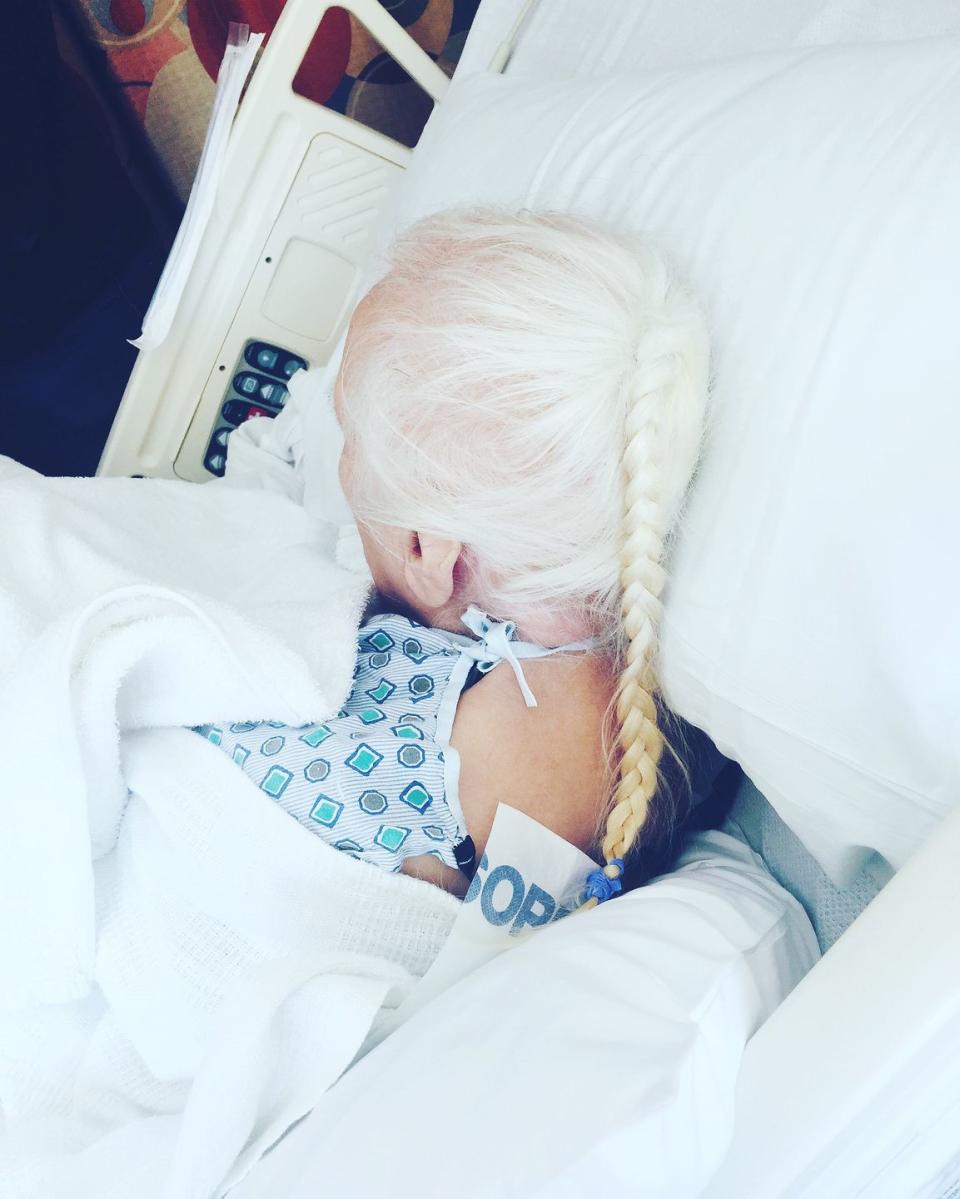
During every visit, I brought her balloons. She loved looking up at them, especially the ones with smiley faces. They always made her smile in return. I’d tie the balloon to her medical chair, then watch as a simple rubber sphere full of helium brought joy to other residents, too. It was the little things that truly mattered — to her, to everyone else in the nursing home, and to me.
A disease can never erase a person.
People will see someone with Alzheimer’s in one of two ways — already gone or still here. During the years my grandmother lived with the disease, some of her family members refused to visit. Not even once. They were “afraid to see her like that,” or argued there was no point because, “she wouldn’t know who they are anyway.” Some didn’t even come see her when she wasn’t doing well in the end, but were the first to post on social media when she passed. A year later, they’re living with a looming guilt, and regret that they weren't there when they should have been. That they didn't comfort my grandmother when she needed it most.
These family members did not know what I intuitively did — that we were my grandmother's keepers. That in caring for her — in feeding her lunch or making sure the aids got her out of bed as often as they should — she would see herself in us, and see us in these moments of kindness and grace. Alzheimer's did not erase who she was, not how she loved. She’d smile at me in a way I’d recognized my entire life. She knew it was me. I knew she was still her.
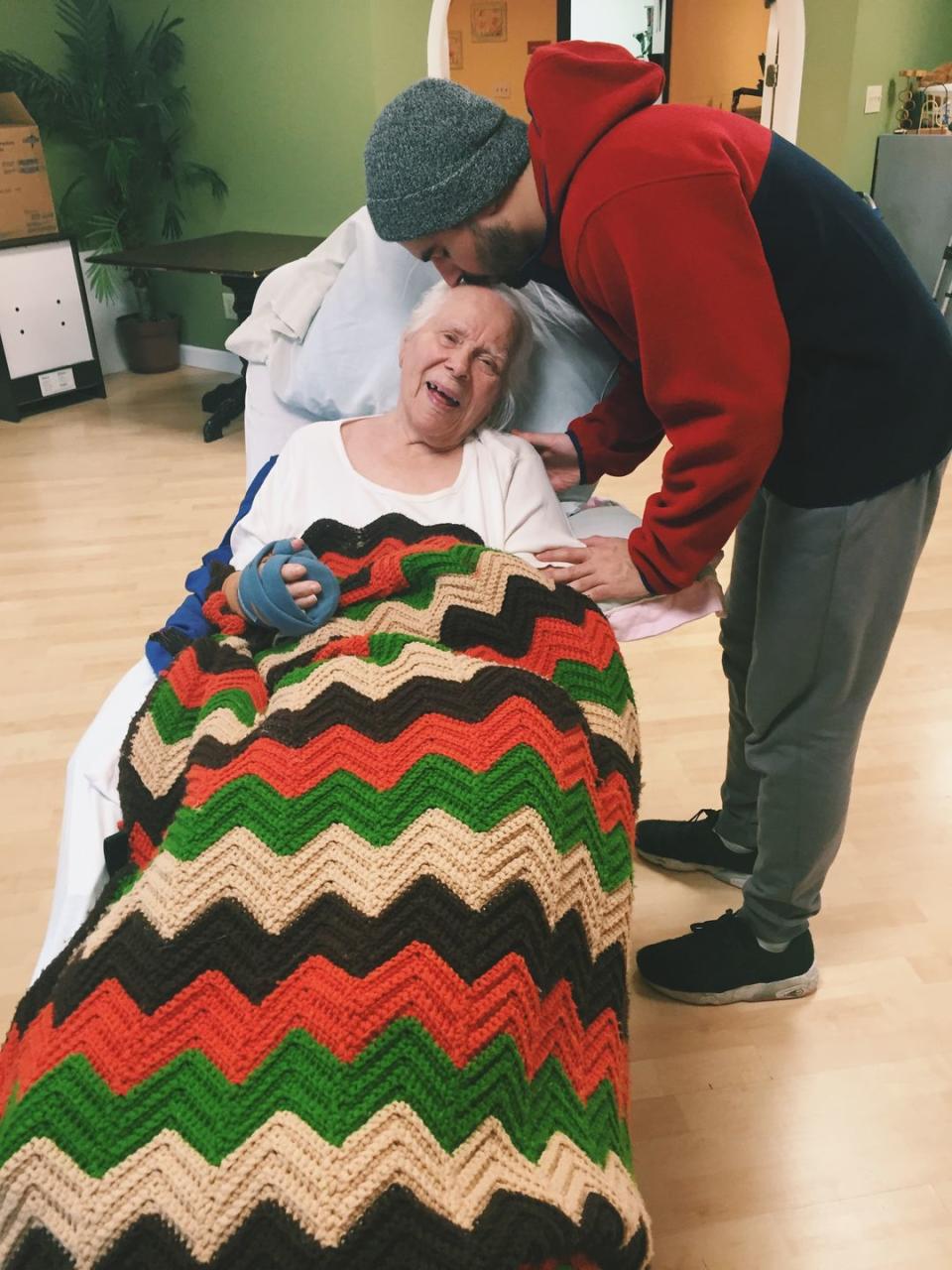
Moving forward and moving on are two different things.
A few months after I lost my yiayia, I was still struggling to adjust to a routine that didn't have her in it. Every Sunday when she was alive, I would visit her for lunch — she always ate everything when I fed her. Months later, I'd still wake up and think to myself, "It's time to see yiayia," only to instantly realize that wasn't going to happen.
Moving on and moving forward are two different mindsets. Moving on is the thought of “getting over it,” whereas moving forward is taking your experience, learning from it, celebrating it, and continuing with your life. I’m still learning how to live my life without my grandmother. I'm still barreling forward, wishing I could tell her everything that I've been up to.
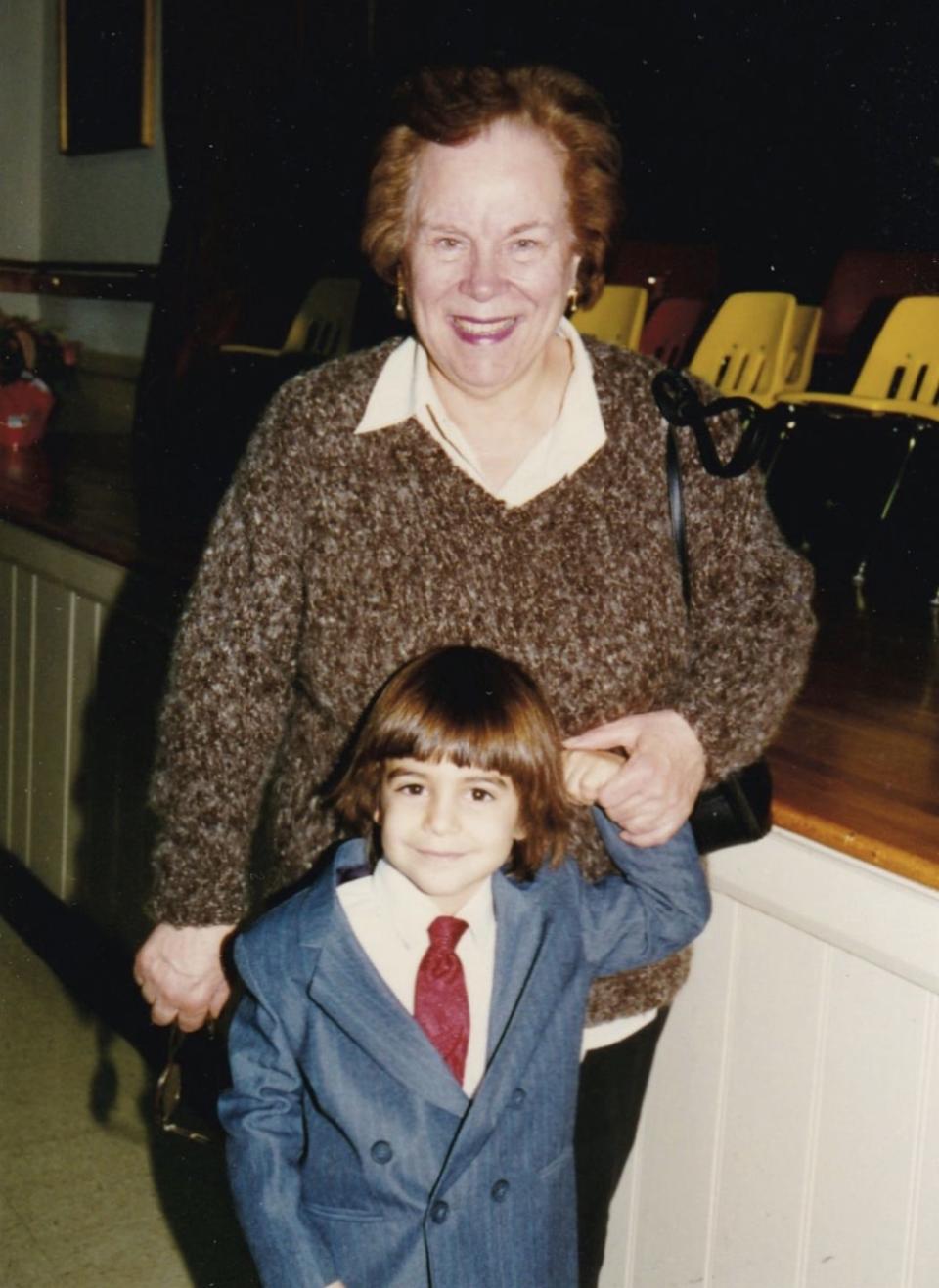
Grief never really goes away. And that's OK.
Just because it's been a year since my grandmother died, doesn't mean I miss her less than the day she was taken from the world. The moments when I've been happy — when I've smiled or laughed, enjoyed a night out with friends, or celebrated a milestone — didn't stop me from missing her. You can be happy and still miss someone. You can move forward and still grieve. It's not the type of grieving you see depicted in the movies or on TV. I'm not staying in bed, sobbing heavily, unable to eat.
Profound loss is not something to "get over," and grief is not something you can move through and then discard. It remains with you, always, morphing into variations of itself. I had someone special to lose, someone I loved deeply. And I don't regret it. My grief, however painful, is a reminder that my grandmother lived and loved, and I was made better for it.
Don’t forget.
When I lost my grandma, I was so afraid that I was going to forget everything. I feared the passing of time; that it would make her just another nostalgic page in a family photo album. I never want to forget. Naturally, I talk about her a lot — someone that was such a big part in my life can’t just be written out of my story.
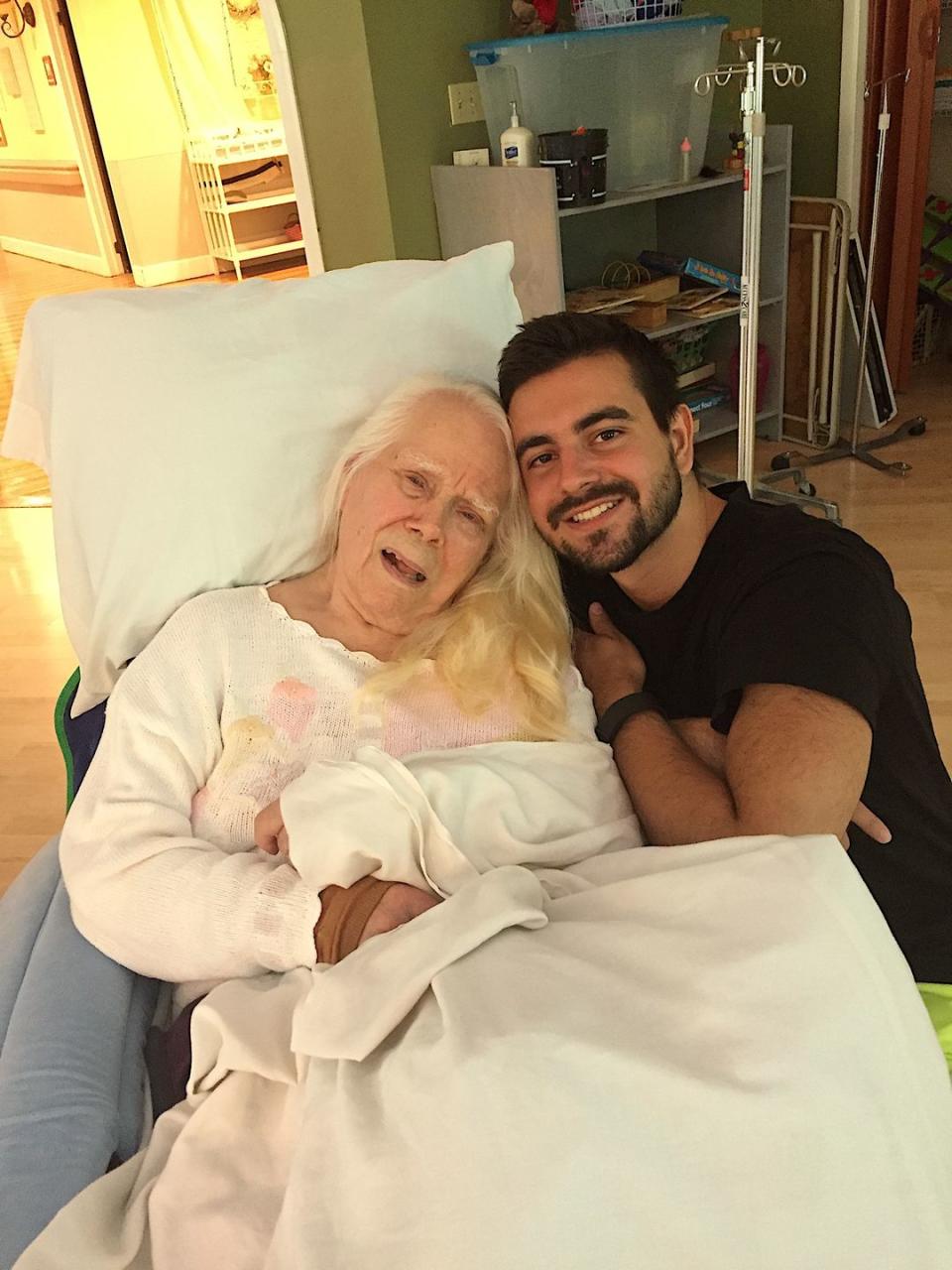
So, I keep talking about her. I keep writing about her. I keep remembering her. And it's such an easy thing to do, because she was such a big part of my life. In fact, the story of me could not exist without the story of her. But continuing to talk about her is also intentional. Not talking about the loved ones we've lost to Alzheimer's is, in my opinion, letting the disease win. I don’t think of my grandma losing her abilities to function, I think of the fight she gave, every single day, to live the remainder of her life with a smile on her face. I think of her selflessness, because that smile was for me. She never wanted me to see her in pain. That was my yiayia. That was us. We continued to find joy, and we laughed, and we reveled in the happiness often found in the small moments. We danced in the pouring rain of her disease.
This is my love letter to my yiayia, because it was a perfect, boundless love that she gave me, and it's a love I'll have for the rest of my life. Even from her medical bed, unable to walk, she was there for me, she never forgot me and no matter where my life leads me, how far from home I go, I’ll never forget it.
You Might Also Like


